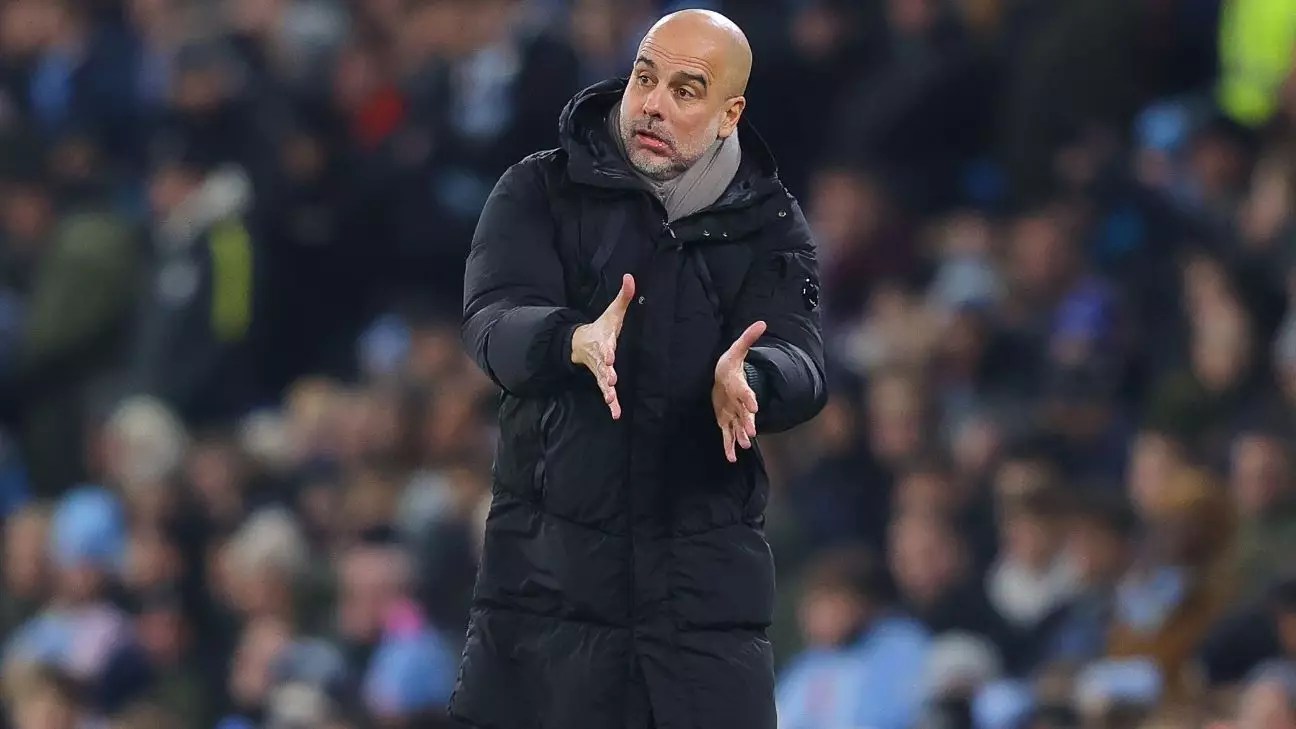In the aftermath of a rocky start to the season, Manchester City’s manager, Pep Guardiola, has publicly lamented his decision to forgo a summer squad overhaul. After a disheartening stretch of matches marked by injuries, Guardiola recognizes that his reliance on existing players may have been misguided. His contemplation reveals a critical evaluation not only of team dynamics but also of managerial strategy in response to unforeseen circumstances.
Guardiola openly admitted that he had an opportunity to strengthen the squad but opted to maintain the status quo. Only two players—Savinho and the returning Ilkay Gündogan—joined the ranks over the summer. Reflecting on this choice, Guardiola stated, “I should have sanctioned more incomings.” This candid assessment underscores the challenges of managing talent and performance amidst fluctuating squad fitness levels.
The decision to retain faith in his established roster has begun to show cracks as injuries have plagued key players, forcing Guardiola to rethink how he approaches team depth and reinforcement. It is a stark reminder that even the most seasoned managers face unpredictable challenges. The Premier League is notoriously competitive, and a lack of depth can cost valuable points, which may have already been lost in the early weeks of the season.
Guardiola’s philosophy of steadfastly trusting his current squad correlates with a broader principle in football management: the balance between loyalty to existing players and the necessity for fresh talent. Injuries, particularly in crucial positions, only amplify the consequences of this decision. As Guardiola prepares for upcoming matches, it’s clear that the club’s strategy must adapt in real time to the physical demands placed on the players.
Looking ahead, City’s winter transfer strategy appears to hinge on immediate solutions to their injury woes, with plans already in motion to secure fresh talent such as defender Abdukodir Khusanov from Lens. Additionally, the club is eyeing Eintracht Frankfurt’s forward Omar Marmoush, signaling a decisive shift in Guardiola’s approach to squad balance. His previous reluctance now seems overshadowed by the necessity for reinforcements to reclaim competitiveness in the league.
Guardiola is also confronted with other pressing matters, such as the potential departure of club captain Kyle Walker, who has expressed interest in a move abroad. The uncertainty surrounding Walker’s future only adds to the complexity of the situation, as the team juggles the integration of new talents with the continuity of their existing line-up.
Guardiola’s reflections serve as a lesson not just for Manchester City but also for the broader football community regarding the importance of adaptability and strategic foresight in team management. The need for a balanced squad cannot be overstated, as injuries can swiftly derail even the most meticulously crafted plans.
As Guardiola aims to solidify team morale amid instability, his commitment to nurturing talent like James McAtee showcases a dual approach: retaining valued players while actively seeking to bolster the squad with new signings. The coming weeks will be pivotal as Manchester City navigates both the challenges of player fitness and the intricate dynamics of team management, ultimately shaping their pursuit of success this season.


Leave a Reply